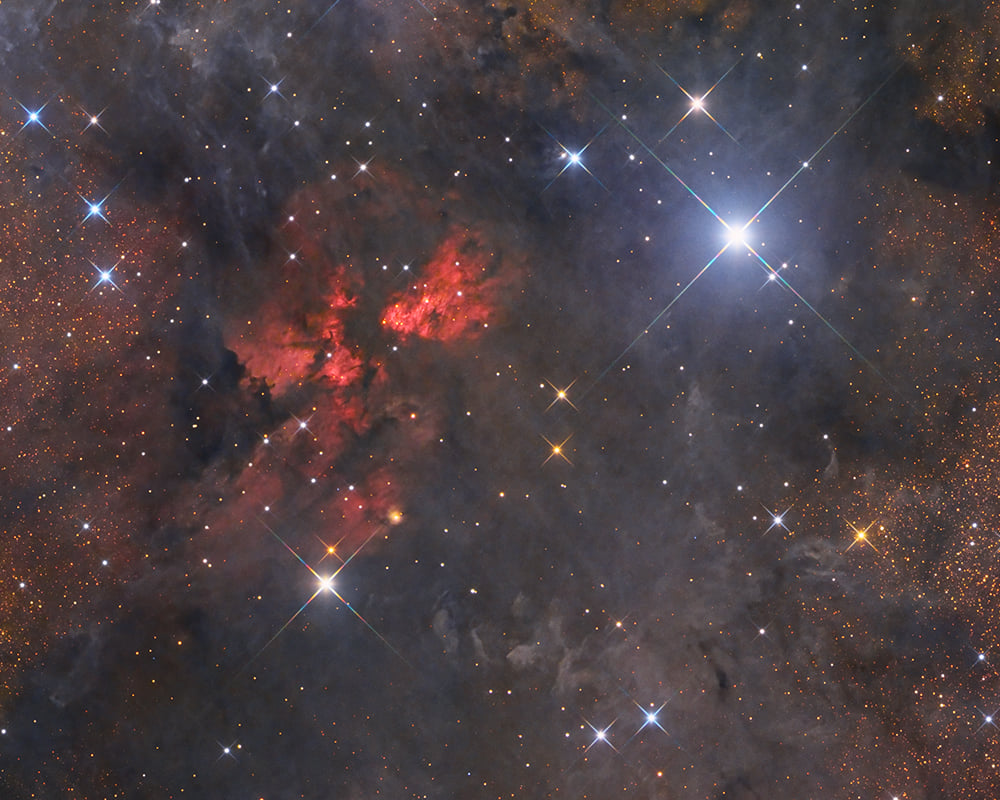The star-forming region Sh2-64 (Westerhout 40) in Serpens
Use the buttons in the upper left corner for full screen, zoom and annotation!
|
Location / Date |
Zellerndorf, July 2018 - September 2019 |
|
Telescope / Mount / Guiding |
ASA 10" Astrograph, ASA 3" Wynne-Corrector (focal length 910mm) |
|
Camera / Exposure |
Moravian G3-16200 2 x 2 panel mosaic: LUM 231 x 10min R 56 x 10min, G 56 x 10min, B 64 x 10min Hα 66 x 20min Total exposure time: 90h 10min |
|
Processing |
PixInsight, Photoshop |
|
Notes |
Sharpless 64 (Sh2-64) or Westerhout 40 (W40) or RCW 174) is a star-forming region in the Milky Way located in the constellation Serpens. In this region, interstellar gas forming a diffuse nebula surrounds a cluster of several hundred new-born stars. It one of the nearest sites of formation of high-mass O-type and B-type stars (approx. 1400 ly). Dust from the molecular cloud in which W40 formed obscures the nebula and makes it unimpressive in visible light. X-ray, infrared and radio observations have been used to see through the molecular cloud to study the star-formation processes going on within. => Wikipedia |
MouseOver to compare visible light with an infrared image from the Spitzer Space Telescope
